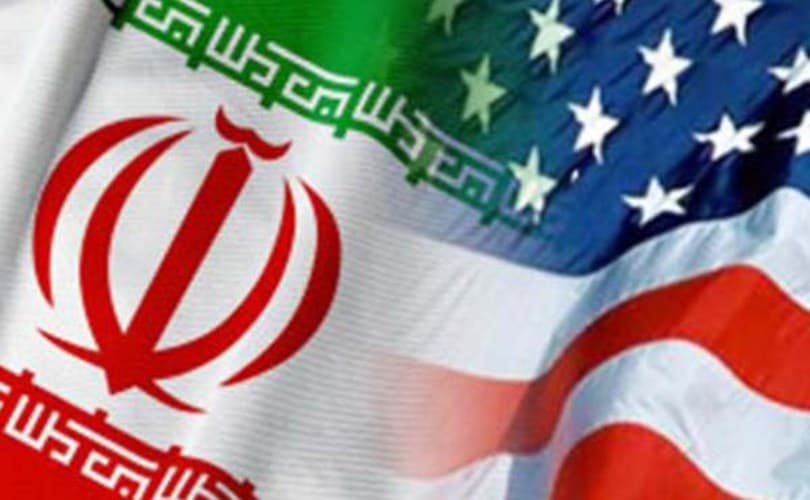Paris: A surge of tensions in the Gulf has shown the risk of a military confrontation between arch-foes Iran and the United States, even if any conflict would likely be marked by guerrilla warfare rather than full-scale battles, analysts say.
A series of mysterious attacks on ships off the coast of the United Arab Emirates, the key ally of Tehran’s Gulf rival Saudi Arabia, prompted President Donald Trump to warn Iran would “suffer greatly” if it harmed US interests.
The United States and Iran have had no diplomatic relations since the seizure by Iranian radicals of American embassy staff in the wake of the 1979 Islamic revolution.
The two sides have at times been close to conflict — in particular during a tense period under former US president George W. Bush — but analysts see a series of factors as making the current moment particularly combustible.
Trump dismayed European allies by pulling out of the 2015 deal on Iran’s nuclear programme unilaterally and is now ratcheting up the rhetoric against Tehran.
Iran and Saudi Arabia, a close ally of the United States for decades, are both enmeshed on opposing sides in the conflict in Yemen. And in US ally Israel, which Iran refuses to recognise, Prime Minister Benjamin Netanyahu is pushing for a hard line against Iran.
– ‘High odds of clash’ –
“The Trump administration has significantly increased tensions in the region and has therefore increased the odds of some sort of inadvertent or even deliberate military clash with Iran,” said International Crisis Group (ICG) Iran project director Ali Vaez.
“The odds of a clash occurring, even without provocation, are quite high.” he told AFP.
He said a belief on both sides that the other does not want a conflict “creates plenty of room for miscalculation” especially at a time when both sides have no direct communication channels.
The war in Yemen also intensifies the risk of an incident between Iran and Saudi Arabia — such as an attack by Tehran-backed Huthi rebels on Saudi interests — being magnified and then pulling in the United States.
Drone attacks on Tuesday, claimed by Iran-aligned Yemen rebels, shut down one of Saudi Arabia’s main oil pipelines, further ratcheting up Gulf tensions.
There are “a lot of non-state actors in the region who could take steps that would push the two sides into a direct confrontation,” said Vaez.
But Washington and its Gulf allies have so far stopped short of blaming Tehran for damage to four ships, including two Saudi oil tankers, a Norwegian tanker and an Emirati ship.
Iran has also distanced itself from the incidents, condemning “acts of sabotage” and a “criminal act”.
Denis Bauchard, advisor for the Middle East at the French Institute of International Relations (IFRI), said there were elements on all sides who wanted no further escalation.
“Looking at this rationally, this should not go any further as there are people who want to calm this down,” he said, pointing to the US and Israeli military establishment.
He said that Iran had so far kept a notably “low profile” in the current tensions but a risk came from hawks on both sides such as US national security advisor John Bolton in the United States and the Revolutionary Guards in Iran.
– ‘Guerrilla warfare’ –
Any escalation between the United States and Iran would likely be played out at sea and have immediate global implications for energy markets if it affected shipping in the key transit point of the Strait of Hormuz.
Analysts say that in the event of a conflict, Iran would most likely resort to its tried and trusted strategy of asymmetric warfare which it has seen since the 1980-1988 Iran-Iraq war as the best way to outflank a more powerful enemy.
“A US-Iran war wouldn’t be a naval war at all in the strict sense of the term,” said James Holmes, from the Naval War College in the United States.
“Guerrilla warfare, not the traditional sea fight, makes a better analogy for Iranian maritime strategy,” he said, adding Iranian ships would concentrate firepower in narrow parts in the Strait of Hormuz.
Jean-Sylvestre Mongrenier, researcher at the Franco-Belgian think-tank Institut Thomas More, said Iran is well aware it has no match for the aircraft carriers of the United States.
He said Iran would not aim to inflict a naval defeat on the United States, but make clear its engagement in the Gulf has a military and material cost.
Such actions could include placing mines in the Strait of Hormuz, harassing US navy craft with smaller warships and also using anti-ship missiles, he said.
[source_without_link]AFP[/source_without_link]

